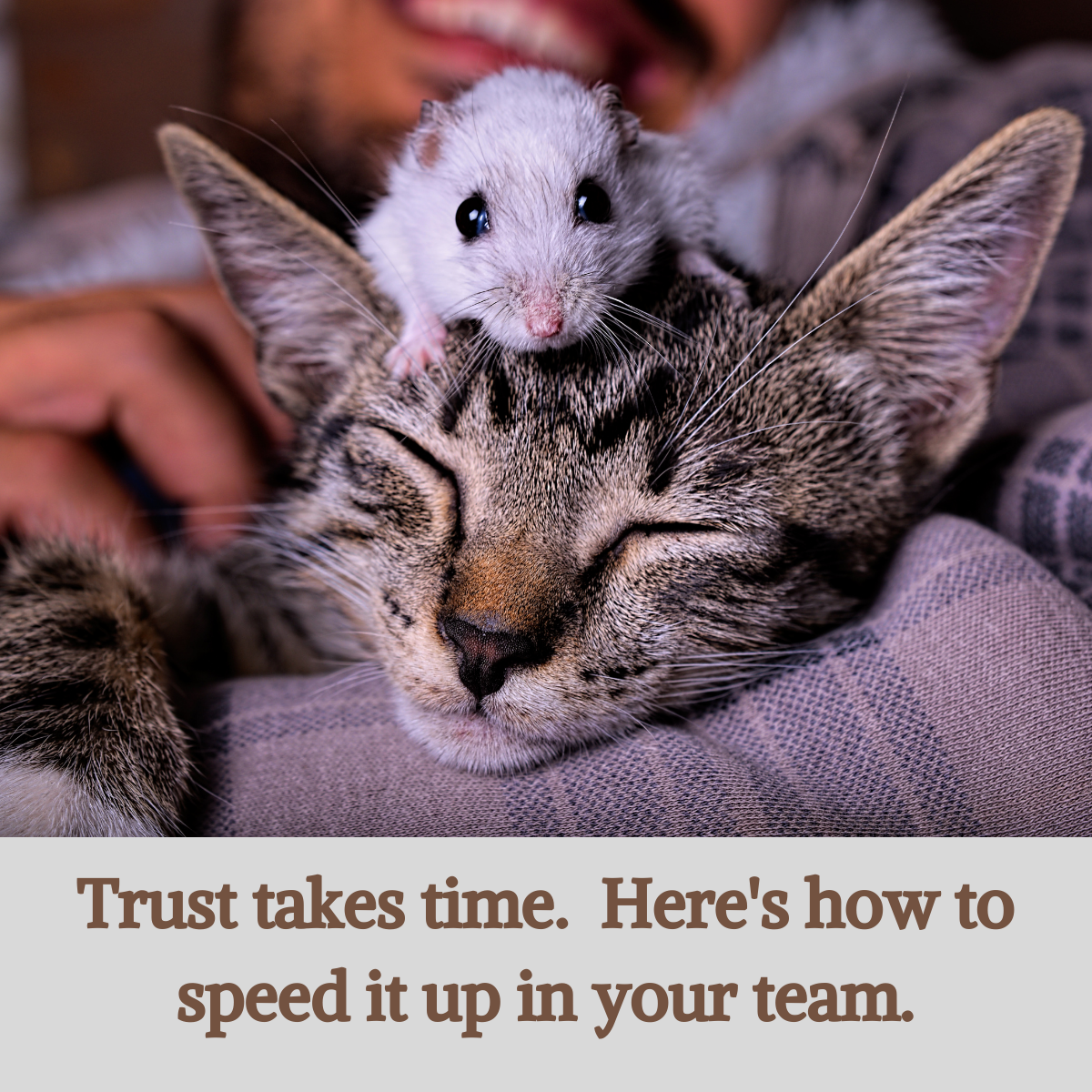Trusting someone can feel like a bit of a gamble. After all, we’re not mind readers, but we do try to figure out if others are trustworthy. It takes time to build trust, often requiring a series of repeated interactions and experiences. These days not only is time a precious commodity, but the opportunity for meaningful interactions is limited, especially at work.
Yet we all know that trust is at the core of success, for employees, colleagues, teams, and entire organizations. The pandemic has made gaining trust even more challenging with people worldwide working from home. It’s different, it’s stressful, and it leaves little time to strengthen key relationships in the office.
As a coach and consultant, I too work from home and must build that all-too-critical rapport through zoom. Although we see one another on zoom, it’s hard to pick up the nuances that characterize our interactions when we’re physically in the same room.
Onboarding during Covid is another great example in which reaching out and establishing mutual trust early on is essential. Even though we know how important it is to express, acknowledge, invite and share our joys and concerns with others, it’s very challenging to do that remotely with people with whom we have had little face time.
Recent studies reveal that although acknowledging/sharing our negative emotions (things that bother us) leads to stronger connections with others, it doesn’t happen as often as would be beneficial because people simply don’t feel comfortable doing so (“Can I trust these people?”), and it takes too long (“We don't have time for this, we have ‘real’ work to do…”)
So here we are. The need for trust is greater than ever because most of us are working remotely, yet time is running, and it takes even longer to develop trust than it did when we most of us were in the office. So, what can you do? Well…
- Demonstrating competence and delivering high quality results will help build trust in your capabilities.
- Being specific, listening actively (with intent to learn) and demonstrating empathy go a long way in building trust in your communication
- Acting with integrity, living by your moral principles, and communicating honestly and openly builds trust in your level of commitment
Still, one of the most important types of trust remains the most elusive—and time consuming. In my work, I need to get to the heart of the matter quickly for my clients. I need to gain their trust early on, and sometimes it can take time for them to open up.
I have begun using a unique type of assessment that enables me to read between the lines with ease. I can understand with whom I’m engaging in very little time, which enables us to “get down to business” quickly. Not only have I applied it in my 1:1 interactions, but I’ve invited entire teams to complete it and the outcomes have been remarkable.
Team members can easily compare and contrast their similarities and differences with any other team member without fear or judgement. They begin to understand what’s behind a colleagues’ behavior, viewing it with appreciation rather than annoyance. An holistic view of the entire team enables them to see their collective strengths and gaps, providing an open platform for exploration driven by compassion, curiosity and commitment.
I love this tool for its simplicity and comprehensiveness. Other tools seem too prescriptive for my taste. I don’t much like being labeled as a color or a box. This tool prompts people to think more deeply about who they are and why they do what they do. And provides me with enough information to get a sense of the person with whom I’m speaking.
